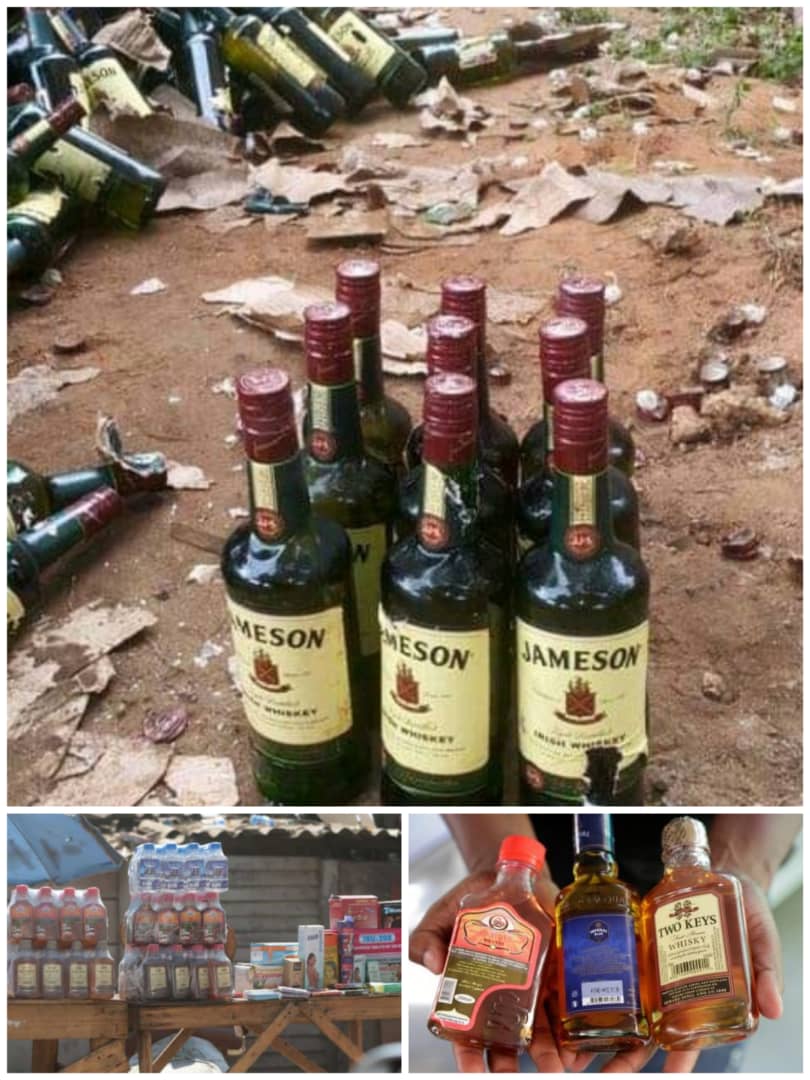Innocent Sibonginkosi Ncube
Zimbabwe is currently facing a major public health crisis due to the widespread availability of illicit alcohol which has led to many youths being addicts of illegally brewed or imported fake alcoholic spirits.
A particularly dangerous alcoholic drink known as nchengu is continously flooding the streets Bulawayo. This illegal brew is produced in makeshift backyard operations located in abandoned industrial areas, such as Kelvin Industrial, and has gained notoriety for its potent effects, leaving countless individuals dangerously intoxicated and addicted.
Nchengu is sold for a mere US$1 for two bottles, making it incredibly accessible, especially to vulnerable populations. As noted by local residents,
“Over the years, it has earned a reputation for wreaking havoc in communities.”
Drinkers of this harmful brew often suffer from life-threatening ailments and alcohol addiction, with young people being the most vulnerable to its devastating effects. Many are unemployed and “drink to forget” their worries being forced unto them by the “economic decline in the country”.
In response to this crisis, the government over two years ago declared a war against this cheap and accessible alcohol, focusing on cracking down on those behind its production. But seemingly the authorities are losing this battle.
In the areas like 5th Avenue Market and some surrounding areas, the illicit brews are publicicly sold.
It gets worse when the brews reach the western suburban areas as the sellers do so indiscriminately, selling to under age youths both boys and girls.
Unfortunately as law enforcement agents fail to contain the proliferation of nchengu, another new battle has emerged against the flourishing market for fake alcohol, which is packaged to resemble high-end whiskey, gin, and brandy brands. This counterfeit alcohol is now being sold under reputable names like Jameson, Jack Daniels, and Johnnie Walker.
“This fake alcohol can be found in some of the City’s most popular nightclubs and venues frequented by the elites of the social scene,” a local business owner lamented.
The illicit alcohol is produced in unlicensed distilleries or makeshift factories and poses a severe risk to the public, as many unsuspecting individuals may be consuming it without realizing the danger.
It is also sold from unlicensed shops and from car boots in the City Center, right infront of patrolling Zimbabwe Republic Police (ZRP) officers.
The proprietor of a popular barbeque hangout in new Luveve expressed his frustration,
“These fake whiskeys and beers sold under the so-called dollar deals are killing our businesses.”
He emphasized that fake alcohol dealers do not have the overhead costs of legitimate businesses, allowing them to undercut prices and operate without accountability.
The trend of fake alcohol being smuggled into the country from neighboring Zambia, South Africa, and Mozambique has raised concerns. A street alcohol dealer explained,
“There is a misconception that when one buys a popular whiskey or gin brand with a bottle stopper, it means the alcohol is genuine. That is far from the truth.”
The dealer further noted,
“It’s very difficult to differentiate between a fake and an original Jameson bottle, for example, until one opens and drinks it.”
Health authorities in Zimbabwe have long sounded the alarm about the spike in fake or illegally produced alcohol. They warn consumers about the adverse effects, which can include long-term health issues and, in some cases, death.
Dr. Evelyn Sungano, a medical practitioner in Bulawayo, explains,
“If drunk in excess, fake alcohol can cause one to suffer from very low body temperature, unconsciousness, or even death.”
The Police in Bulawayo have committed to regular raids to rid the city of establishments that manufacture or distribute alcohol without the required permits and licenses but the war is far from over.
“It will be difficult for the ZRP to eradicate this problem because its either officers are bribed to look aside or they partake in this illegality (they buy these fake brands or consume nchengu).”
This was said by an economic analyst based in Bulawayo.
As the government and health authorities continue to combat this public health crisis, the need for consumer awareness and regulation remains critical.
Zim GBC News©2024


